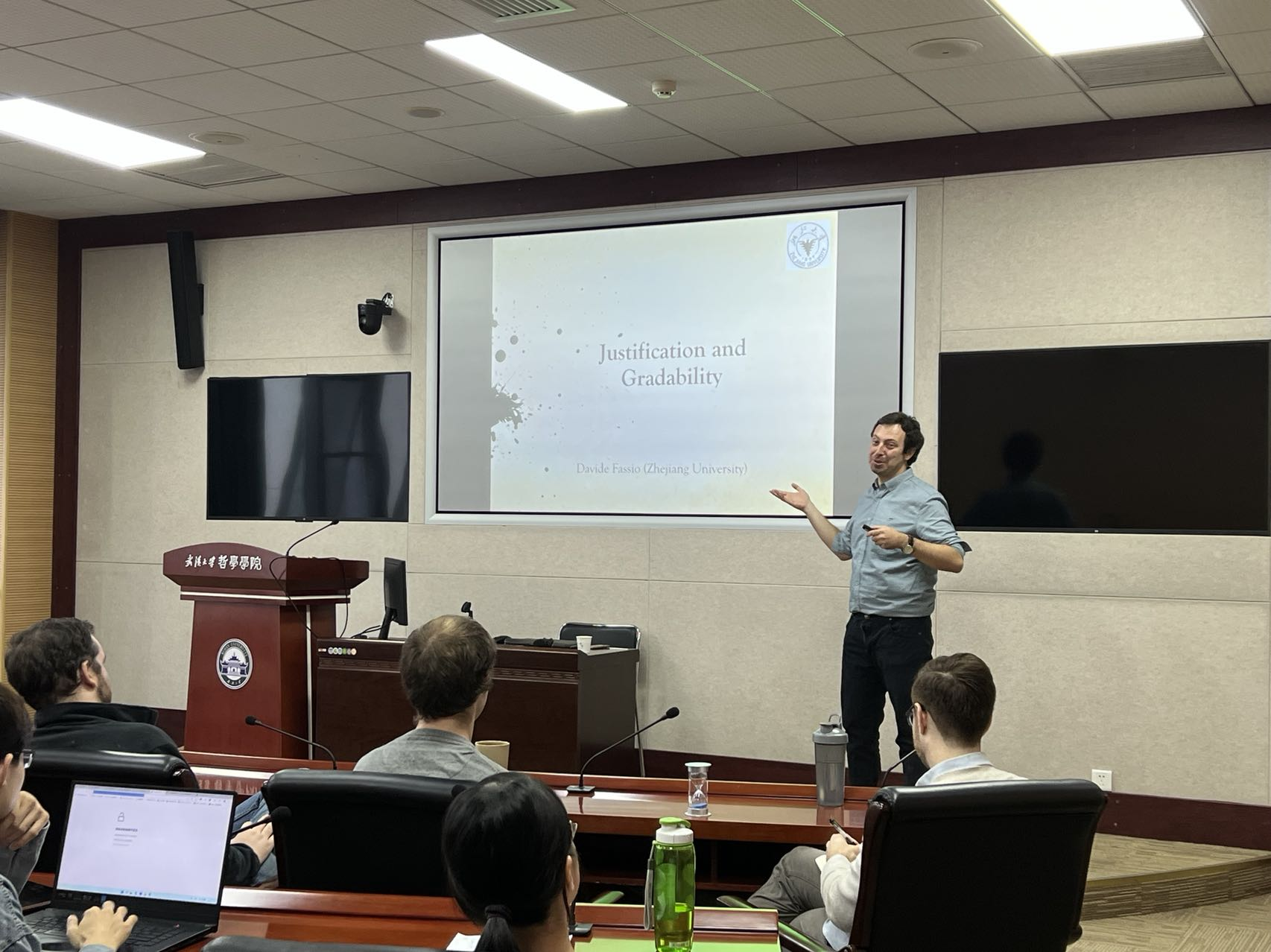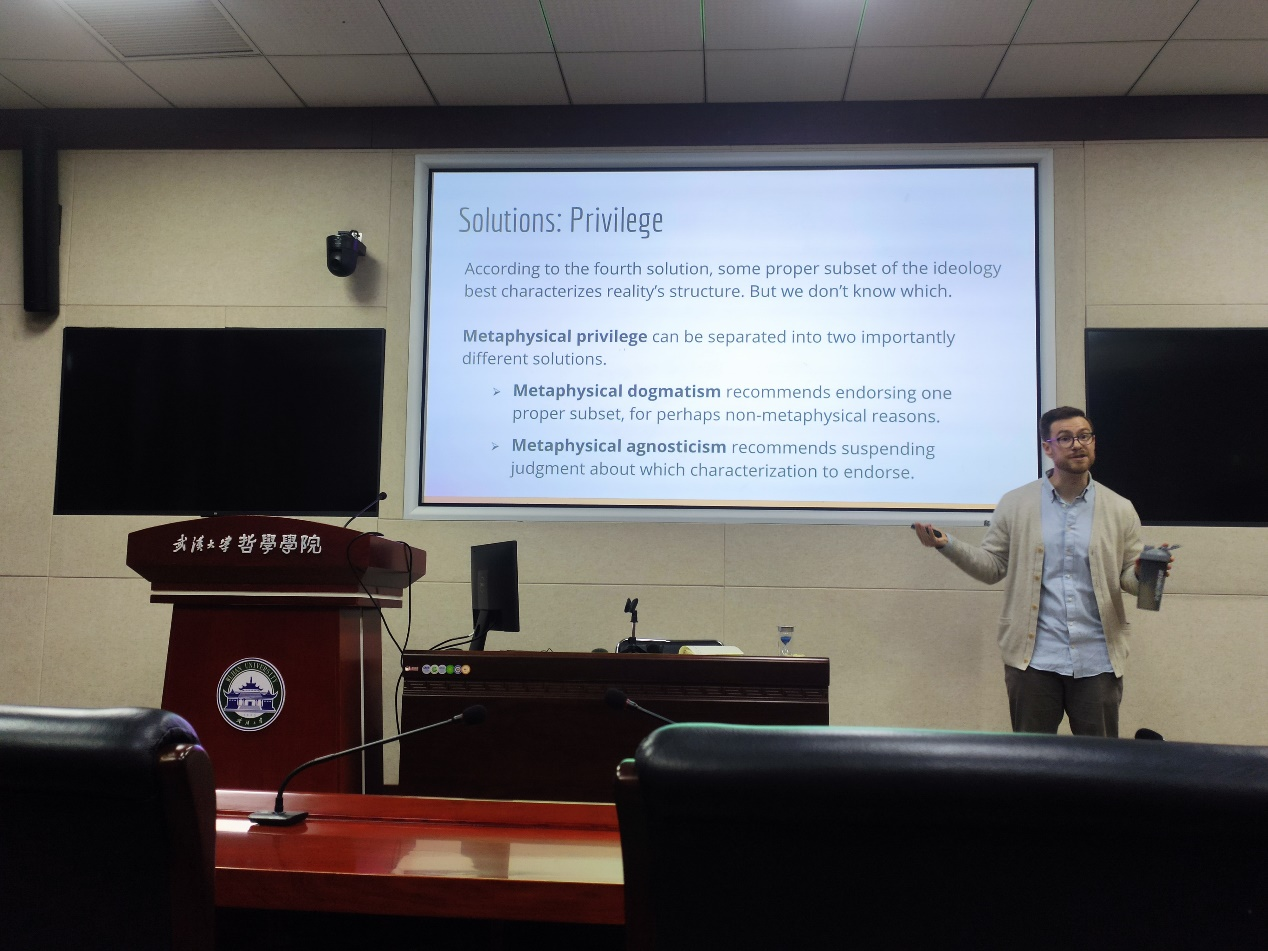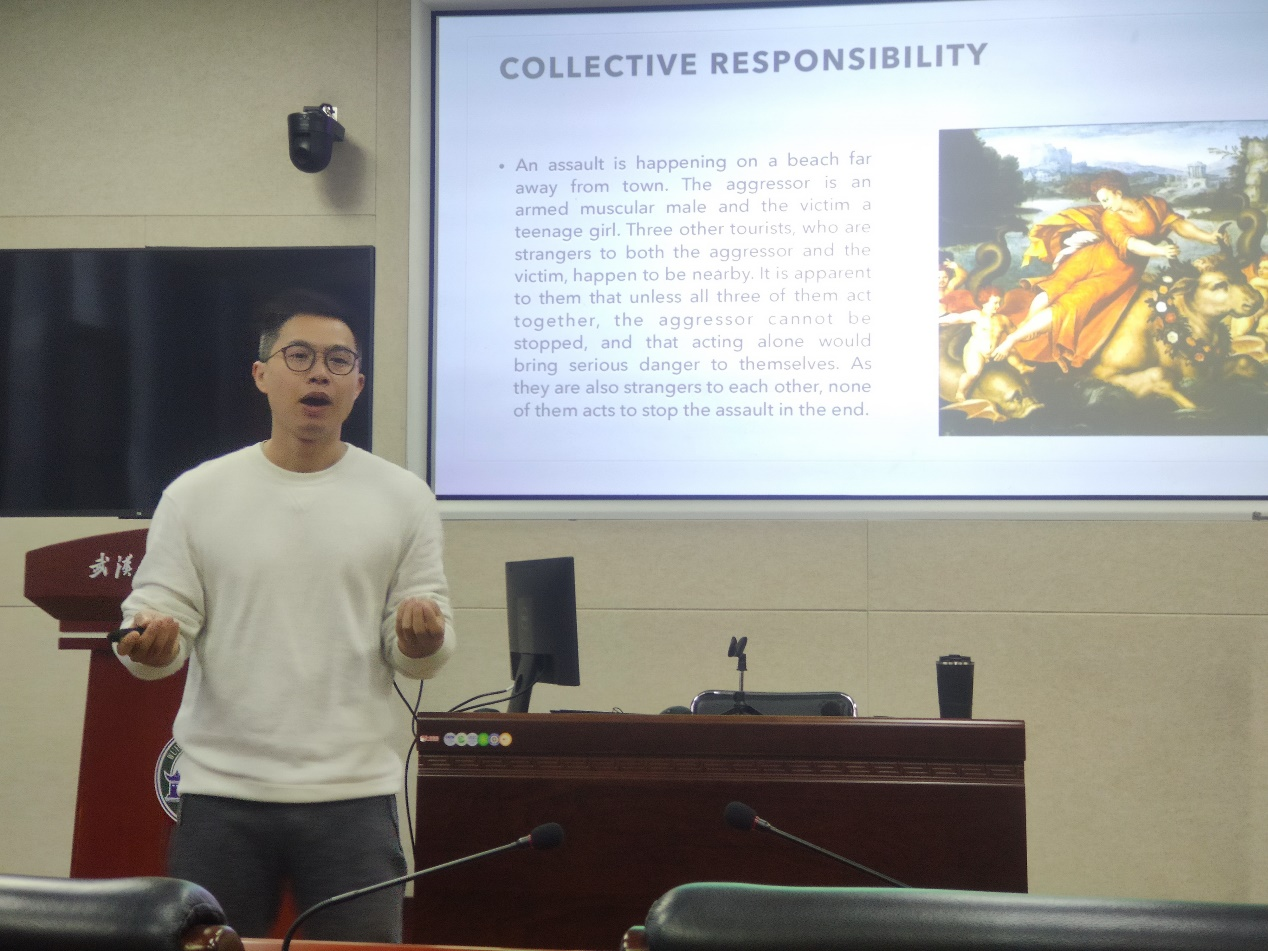On Thursday 4 November and Friday 5 November, Wuhan University School of Philosophy held a lecture series titled “Frontiers of Epistemic Agency”. The lecture series featured two talks from Davide Fassio (Zhejiang University), as well as talks from two WHU faculty: Peter Finocchiaro and Xiaofei Liu.

Davide Fassio opened the lecture series on Thursday afternoon with a talk titled “Justification and Gradability”. Drawing on various elements of linguistic evidence, he argued that the concept of justification is best understood as a gradable term – but one that is absolute, rather than relative. Following his talk, he received several challenging questions from both faculty and students. One particularly noteworthy question came from a student who suggested that Professor Fassio’s position might not straightforwardly map onto equivalent terms for “justification” used in other languages.

The second talk on Thursday afternoon, titled “Against Metaphysical Egalitarianism”, was delivered by Peter Finocchiaro. He criticised the view that invidious metaphysical distinctions are best avoided by making use of both logical conjunctions and logical disjunctions. The problem with this position, he argued, is that it does not account for the disvalue of employing inaccurate ideology.

On Friday morning, the lecture series continued with Xiaofei Liu’s talk, “Split-Brain, Manipulation, and Collective Agency”. Professor Liu explored a dilemma for collectivist views of agency: either they unnecessarily propagate a view of the identity of agents, or they inappropriately eliminate the identity of agents. He used a particularly memorable and graphic example to illustrate this dilemma: consider a person whose brain is completely severed into two halves, with the result that each half of the brain can be said to constitute a separate entity capable of intentional action on its own. He concluded that a plausible solution to this dilemma will require us to take into consideration how we normally individuate agents, even if this causes problems for collectivist accounts of agency.

This was followed by the final talk of the lecture series, again from Davide Fassio, entitled “Epistemic Normativity: Axiological or Deontic?” He sought to defend the view that epistemic norms are best understood in deontic rather than axiological terms – that is, they are best understood as claims about what is obligatory, permissible, or impermissible, rather than what is desirable or undesirable.
After all the challenges created by the Covid-19 pandemic, the lecture series marked a welcome return to hosting visiting speakers on campus. All four talks were well attended by both faculty and students, suggesting that many people have been looking forward to attending in-person philosophy talks for some time. We look forward to hosting similar events in the future.
Written by Ben Cross



